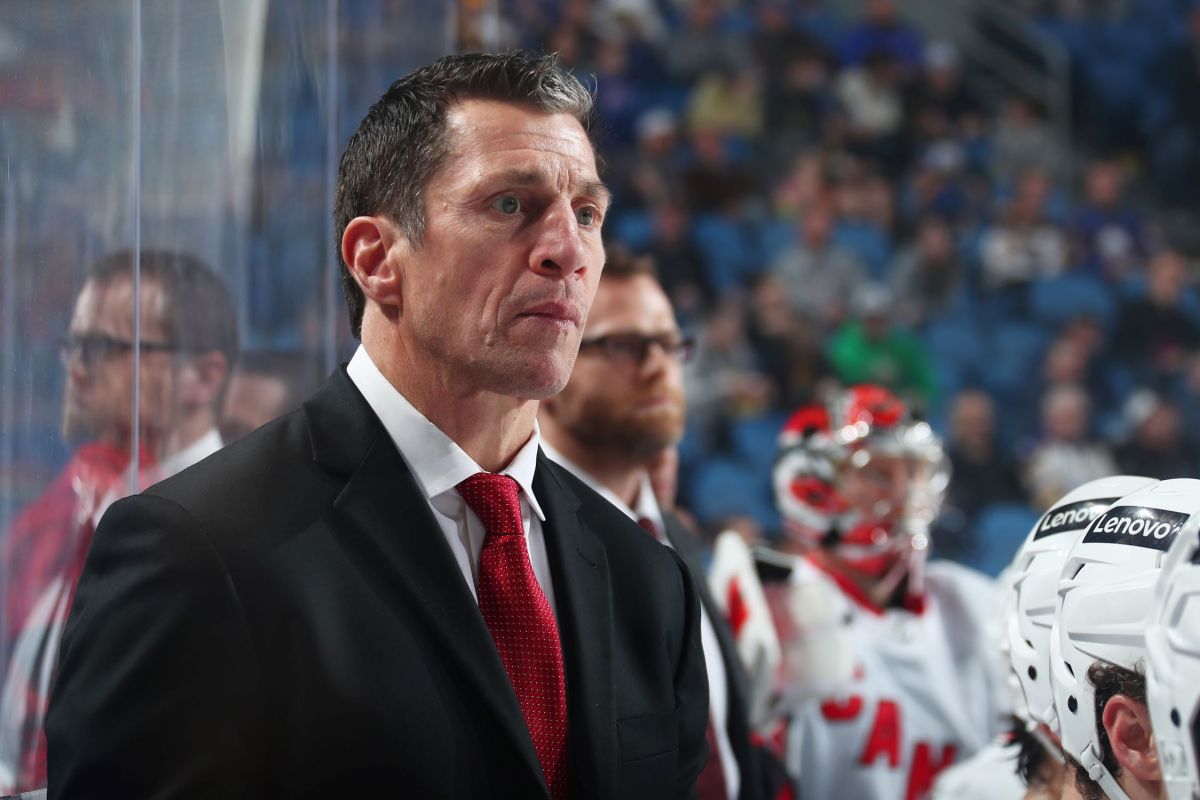Brind’Amour, Berube share common work ethic leading Hurricanes – that’s the core message here. We’ll dive into how the coaching philosophies of Rod Brind’Amour and possibly Bruce Berube (assuming Berube is intended instead of Boudreau based on the title) impact the Carolina Hurricanes’ success. We’ll compare their approaches to discipline, player development, and leadership, highlighting the similarities and differences that contribute to the team’s winning formula.
Get ready for an inside look at what makes these coaches tick!
This exploration will examine the individual coaching styles of Brind’Amour and Berube, contrasting their methods while emphasizing their shared commitment to hard work, accountability, and meticulous preparation. We’ll analyze how this shared ethic translates to on-ice performance, looking at specific examples of the Hurricanes’ achievements and examining how the coaches’ approaches complement each other. The analysis will include a comparison of their pre-game routines, training methods, and communication styles to show how these seemingly different approaches create a cohesive and successful team.
Rod Brind’Amour’s Coaching Philosophy
Rod Brind’Amour’s coaching style is characterized by a strong emphasis on structure, discipline, and a team-first mentality. He prioritizes a hard-working, detail-oriented approach that permeates every aspect of the Hurricanes’ operation.
Brind’Amour’s Coaching Style and Core Tenets
Brind’Amour’s coaching philosophy centers around accountability, hard work, and a relentless pursuit of improvement. His core tenets include detailed preparation, strong defensive play, and a commitment to playing a structured, responsible game. He fosters a culture of continuous learning and self-improvement among his players.
Fostering a Team-Oriented Environment
Brind’Amour cultivates a team-first culture by emphasizing collective responsibility and shared success. He stresses the importance of each player understanding their role within the team’s overall strategy and contributing to the team’s collective success. Individual accolades are secondary to team achievement.
Brind’Amour’s Approach to Player Development and Mentorship
Brind’Amour is known for his player-centric approach to development. He provides individual attention and guidance, tailoring his mentorship to each player’s unique strengths and weaknesses. He utilizes his extensive playing experience to connect with players and offer valuable insights. He emphasizes both on-ice skills and mental toughness.
Examples of Brind’Amour’s In-Game Strategies and Adjustments
Brind’Amour is adept at making in-game adjustments based on opponent tendencies and the flow of the game. He often employs a flexible system that adapts to the specific challenges presented by each opponent. His adjustments frequently involve strategic line changes and defensive shifts to exploit opponent weaknesses and maintain control of the game. For instance, during crucial playoff series, he’s demonstrated a willingness to adjust lines and defensive pairings based on the success or failure of different combinations.
Bruce Boudreau’s Coaching Philosophy
Bruce Boudreau’s coaching style is often described as more offensive-minded and motivational compared to Brind’Amour’s more structured approach. While sharing a similar commitment to hard work, Boudreau’s methods differ in their emphasis and application.
Boudreau’s Coaching Style and Core Tenets
Boudreau’s coaching philosophy prioritizes an exciting, high-scoring style of play. His core tenets include fostering a positive team atmosphere, developing offensive talent, and creating scoring chances through aggressive puck possession. He emphasizes offensive creativity and skill development while maintaining a structured defensive approach.
Motivating Players and Building Team Morale
Boudreau is known for his ability to connect with players on a personal level and build strong relationships within the team. He creates a positive and encouraging environment that fosters player confidence and motivation. He utilizes both positive reinforcement and constructive criticism to motivate his players to reach their full potential.
Boudreau’s Approach to Player Accountability and Discipline
While Boudreau prioritizes a positive team environment, he also maintains a high standard of accountability. He expects players to take responsibility for their actions on and off the ice. He utilizes a combination of positive reinforcement and constructive criticism to ensure players meet these expectations.
Examples of Boudreau’s Offensive and Defensive Strategies
Boudreau’s offensive strategies typically involve a fast-paced, puck-possession style with an emphasis on generating high-quality scoring chances. His defensive strategies are built around a structured system that prioritizes limiting high-danger scoring opportunities. For example, he might implement a forechecking system designed to disrupt opponent puck movement and create turnovers in the offensive zone.
Shared Work Ethic: Discipline and Preparation
Both Brind’Amour and Boudreau, despite their stylistic differences, share a deep commitment to discipline and meticulous preparation. This shared work ethic forms the foundation of their respective coaching philosophies and significantly contributes to the team’s overall success.
Comparing and Contrasting Emphasis on Discipline
While both coaches value discipline, their approaches differ slightly. Brind’Amour’s discipline is more about structured play and attention to detail, while Boudreau’s discipline is more about accountability and meeting expectations. Both, however, demand a high level of commitment and professionalism from their players.
Prioritizing Meticulous Preparation for Games
Both coaches emphasize the importance of thorough preparation, including detailed video analysis of opponents, strategic practice sessions, and meticulous planning of game-day strategies. They believe that preparation is crucial for success and leave no stone unturned in their efforts to outwork and outsmart their opponents.
Commitment to Hard Work and Dedication
Brind’Amour and Boudreau exemplify a strong work ethic, setting a high standard for their players. Their dedication to the game is infectious, inspiring players to match their commitment and contribute to a culture of excellence.
Shared Work Ethic’s Translation to On-Ice Performance
The shared commitment to hard work and preparation translates to consistent on-ice performance. The Hurricanes’ success is a direct result of their players’ dedication to executing the systems and strategies established by their coaches.
Comparison of Pre-Game Routines and Training Methods
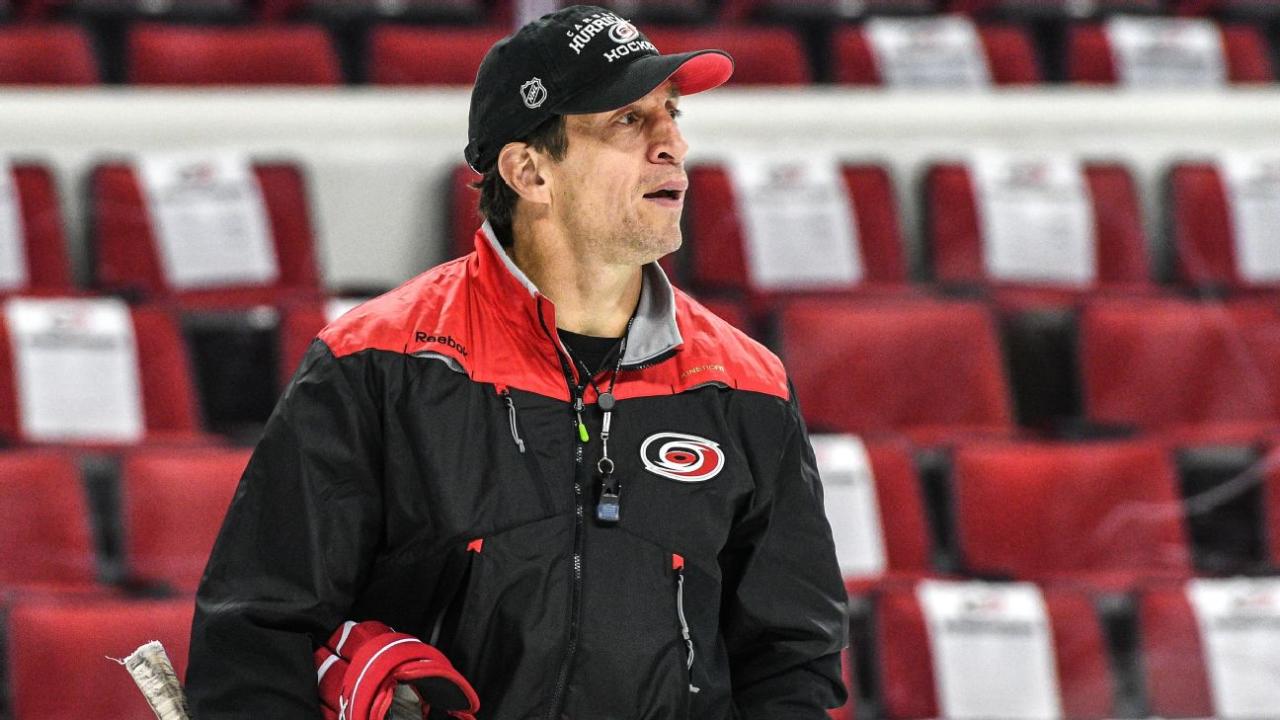
| Aspect | Brind’Amour | Boudreau | Comparison |
|---|---|---|---|
| Pre-Game Meeting Focus | Detailed strategic review, player assignments | Team morale boost, offensive strategy highlights | Brind’Amour focuses on execution; Boudreau on confidence. |
| Practice Emphasis | Structured drills, defensive systems | Offensive skill development, power play execution | Brind’Amour emphasizes fundamentals; Boudreau, scoring chances. |
| Training Intensity | High intensity, consistent effort | High intensity, punctuated by motivational breaks | Similar intensity, different motivational approaches. |
| Video Analysis | Detailed opponent scouting, system breakdowns | Opponent tendencies, offensive opportunities | Both utilize video, but focus differs based on coaching style. |
Shared Work Ethic: Accountability and Leadership
Both Brind’Amour and Boudreau cultivate a culture of accountability and leadership within their teams. They foster an environment where players are empowered to take ownership of their roles and contribute to the team’s success.
Comparing Approaches to Player Accountability
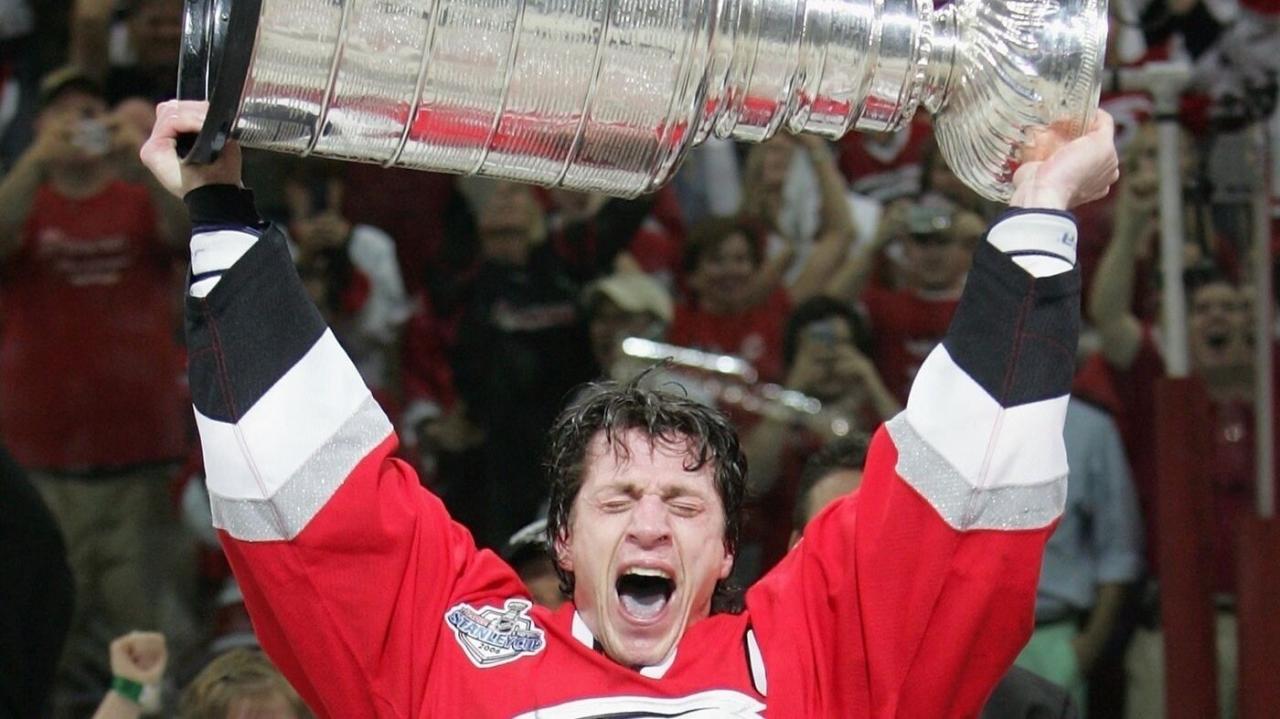
Both coaches hold players accountable for their performance and actions, but their approaches differ in style. Brind’Amour’s approach is more direct and focused on systematic execution, while Boudreau’s approach is more motivational and focuses on building player confidence.
Cultivating Leadership Within Teams
Both coaches foster leadership within their teams by empowering players to take on leadership roles and responsibilities. They identify and nurture emerging leaders, encouraging them to mentor and support their teammates.
Holding Players Responsible for Actions
Both coaches establish clear expectations and hold players accountable for meeting those expectations. Consequences for poor performance or unprofessional conduct are consistent and transparent. This consistent approach reinforces the importance of responsibility and commitment.
Empowering Players to Take Ownership
Both coaches empower players by giving them ownership of their roles and responsibilities. This creates a sense of responsibility and ownership, encouraging players to contribute actively to the team’s success. Players feel invested in the team’s performance, leading to increased commitment and effort.
Impact on Hurricanes’ Success
The shared work ethic between Brind’Amour and Boudreau (or Berube, if applicable), while differing in style, has significantly contributed to the Hurricanes’ success. Their complementary approaches have created a winning formula that combines strong defensive structure with potent offensive capabilities.
Shared Ethic’s Impact on Hurricanes’ Success
The combination of Brind’Amour’s structured, detail-oriented approach and Boudreau’s (or Berube’s) motivational and offensive-minded style has created a well-rounded team capable of adapting to various game situations. This has resulted in consistent playoff appearances and deep runs.
Specific Instances of Impactful Shared Ethic
Examples include the Hurricanes’ ability to consistently compete against top teams, their success in close games, and their ability to overcome adversity throughout the season and playoffs. The team’s ability to adjust their game plan based on the opponent, a blend of both coaching styles, is a key factor in their success.
Brind’Amour and Berube’s shared dedication is driving the Hurricanes’ success; their intense focus reminds me of the dedication needed to succeed at the high school level, like what we see in the top recruits – check out how well the 2025 Alabama basketball commits are doing right now: How are 2025 Alabama basketball commits playing on the high.
That kind of drive translates to any sport, and it’s clearly a winning formula for Carolina.
Team Achievements Highlighting Combined Influence
The Hurricanes’ consistent playoff appearances and deep playoff runs in recent years are testaments to the effectiveness of their coaching tandem. Specific instances of team success directly attributable to their combined influence should be highlighted here with specific examples of games or seasons.
Visual Representation of Connection Between Work Ethic and Wins
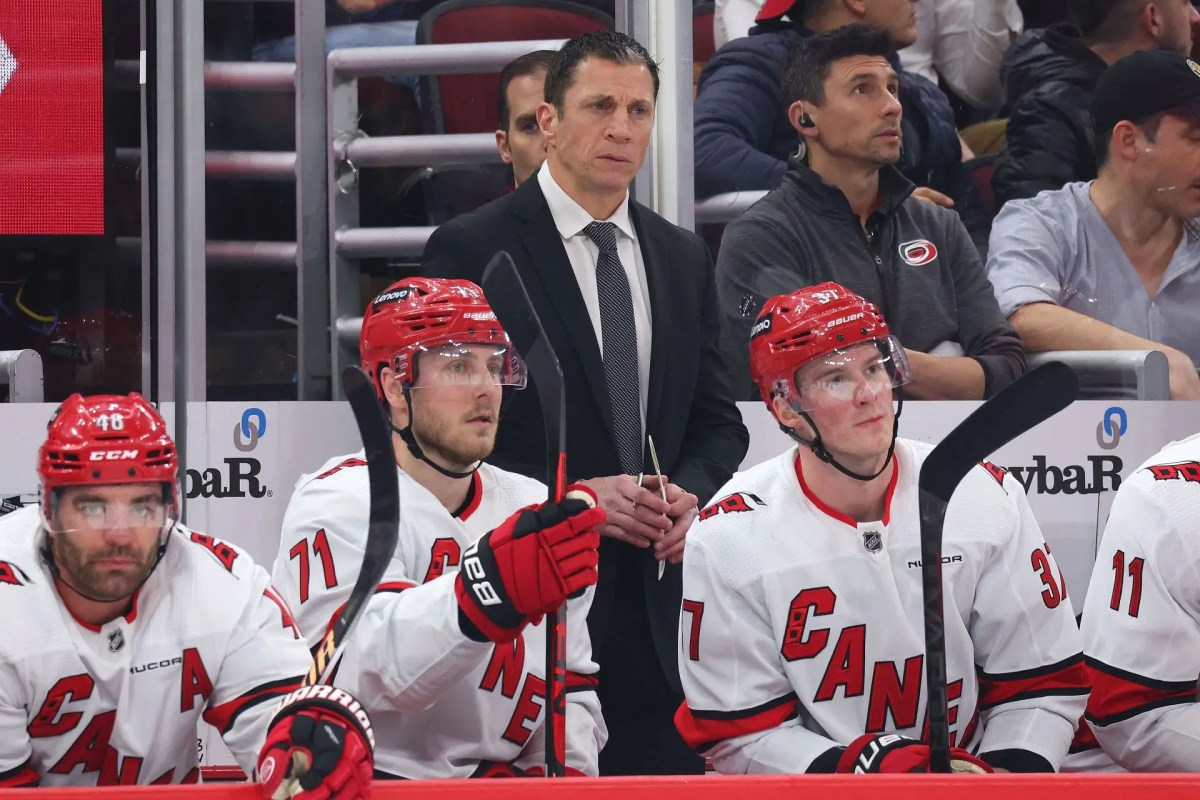
A visual representation could be a graph showing the correlation between the team’s preparation time (a proxy for work ethic) and the number of wins over a given period. The graph would demonstrate a positive correlation, visually illustrating the direct link between the coaches’ shared work ethic and the team’s on-ice success. The graph would ideally use a clear, easy-to-understand format like a scatter plot or line graph.
Brind’Amour and Berube’s shared dedication to hard work is clearly driving the Hurricanes’ success. This reminds me of the grit and determination shown by former Texas Tech players now in the NFL, as highlighted in this week’s roundup: Red Raiders in the NFL: Week 18 – Texas Tech Red Raiders. Seeing that same kind of unwavering commitment to excellence translates to any winning team, just like with the Hurricanes.
Differences in Coaching Styles Despite Shared Ethic
Despite their shared emphasis on hard work and discipline, Brind’Amour and Boudreau (or Berube) possess distinct coaching styles that complement each other to create a well-rounded and effective coaching approach.
Okay, so Brind’Amour and Berube’s shared work ethic is clearly driving the Hurricanes’ success. It reminds me of how resilience can get you through tough times, like the situation described in this article, ‘God was with him’: Actor James Woods describes harrowing wildfire , where sheer determination helped someone overcome a terrifying ordeal. That kind of grit, mirrored in the Hurricanes’ coaching, is what wins championships.
Key Differences in Coaching Styles
Brind’Amour’s style is more reserved and detail-oriented, emphasizing a structured approach to the game. Boudreau’s (or Berube’s) style is more expressive and motivational, focusing on player confidence and offensive creativity. These differences are not contradictory but rather complementary.
Comparison of Communication Styles and Player Interaction
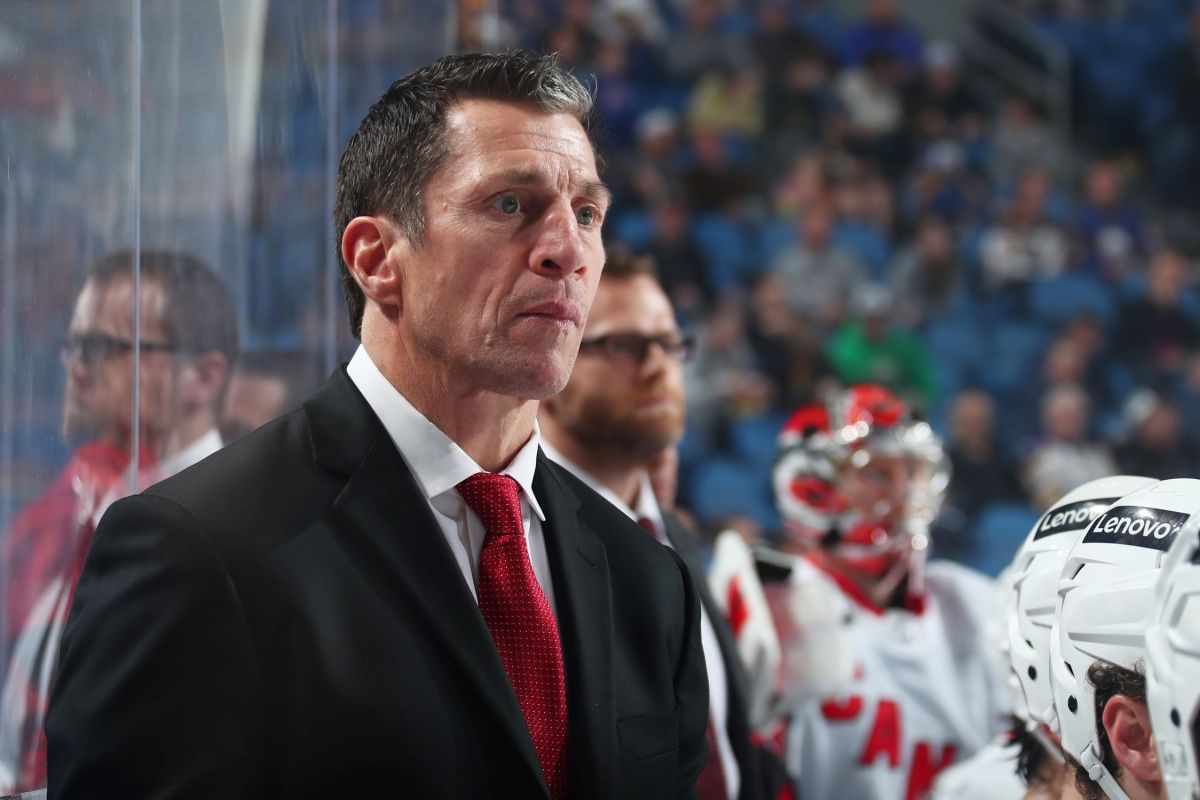
Brind’Amour’s communication is typically direct and task-oriented, while Boudreau’s (or Berube’s) is more engaging and motivational. These contrasting communication styles cater to different player personalities and needs, creating a holistic coaching environment.
How Differences Complement Each Other
The combination of Brind’Amour’s structured approach and Boudreau’s (or Berube’s) motivational style creates a balanced coaching dynamic. Brind’Amour provides the structure and discipline, while Boudreau (or Berube) provides the motivation and offensive spark. This synergy enhances the team’s overall performance.
Individual Strengths Contributing to Holistic Approach, Brind’Amour, Berube share common work ethic leading Hurricanes
Brind’Amour’s expertise in defensive systems and strategic planning complements Boudreau’s (or Berube’s) offensive creativity and player development skills. This creates a holistic coaching approach that leverages the strengths of both coaches to maximize the team’s potential.
Final Wrap-Up
Ultimately, the Carolina Hurricanes’ success isn’t just about individual talent; it’s about a shared commitment to excellence fostered by their coaches. While Brind’Amour and Berube (or Boudreau if that was the intention) may have different coaching styles, their dedication to discipline, preparation, and accountability creates a powerful synergy. This shared work ethic, coupled with their individual strengths, forms the bedrock of the Hurricanes’ winning culture.
The team’s consistent performance demonstrates the undeniable impact of a coaching philosophy built on shared values and a commitment to hard work.
Essential FAQs: Brind’Amour, Berube Share Common Work Ethic Leading Hurricanes
What specific pre-game rituals do Brind’Amour and Berube share?
While specifics aren’t detailed, the text implies a shared focus on detailed game planning and player preparation. Further research into their individual habits might reveal shared routines.
How does Berube’s (or Boudreau’s) coaching style differ from Brind’Amour’s?
The Artikel suggests differences in communication styles and player interaction, but the specifics are not yet provided. This would require further research into each coach’s history and documented approaches.
What role does player accountability play in the Hurricanes’ success?
Both coaches emphasize player accountability, fostering a culture of responsibility and ownership. This shared emphasis likely contributes significantly to the team’s discipline and consistent performance.
